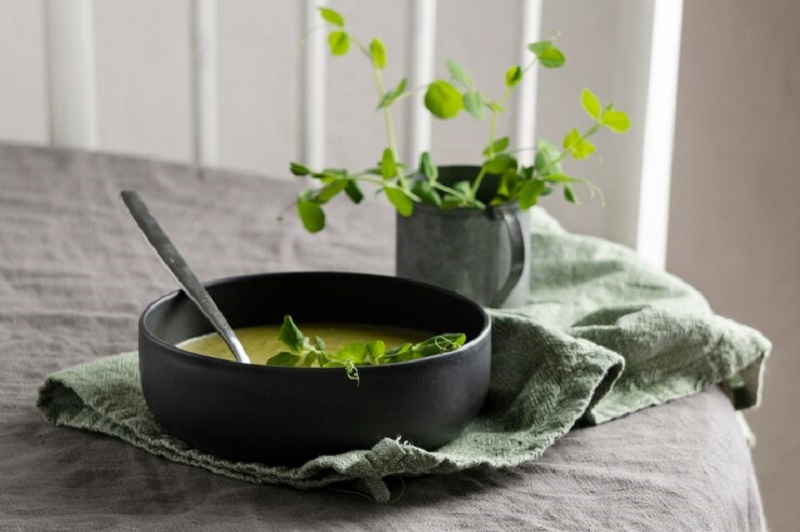Raw sea moss, this spiny sea vegetable is a superfood that is used in health supplements because of its health benefits. Supplements with low viscosity also use sea moss as a thickening ingredient. The scientific name of this vegetable is Chondrus crispus. This seaweed is also known by other names including red seaweed or Irish moss. Sea moss grows year-round in the Atlantic Ocean coastal areas in different colors such as red, brown, black, yellow, purple and green. However, red moss is one of the most common varieties.
Carrageenan, a jelly-like substance extracted from sea moss, is used in cottage cheese, non-dairy milk, ice cream, infant formula, jelly and other food products as a thickening agent. You can add this algae to milk and honey or boil it to make a drink. It is also used in shoe polish and toothpaste. The leather industry uses carrageenan to cure leather.
Many people advocate the health benefits of sea moss. One such benefit is the prevention of Parkinson’s disease. This brain condition affects the human nervous system causing problems related to mental health, movement, pain, sleep and more. So, what is the link between premium raw sea moss and the prevention of Parkinson’s disease?
Parkinson’s disease is a progressive neurodegenerative disorder that affects movement control and can lead to significant impairment in quality of life. Symptoms include tremors, stiffness, slowness of movement, and balance problems, often accompanied by non-motor symptoms such as depression, sleep disturbances, and cognitive decline.
As the disease progresses, these symptoms become more severe, making it crucial to explore potential preventive measures and treatments. One natural substance that has garnered attention for its potential health benefits is raw sea moss, or Chondrus crispus.
Nutritional Composition and Benefits
Sea moss is lauded for its potential health benefits, primarily due to its dense nutritional composition. It is rich in iodine, a crucial element for thyroid function, and contains significant amounts of vitamins A, C, E, and K, as well as folate, iron, and zinc. These nutrients play vital roles in maintaining overall health and supporting the immune system. Additionally, sea moss contains bioactive compounds like polysaccharides, peptides, and phenolics, which have demonstrated various health-promoting properties, including anti-inflammatory and antioxidant effects.
Antioxidant Properties and Neuroprotection
One of the key factors linking sea moss to the prevention of Parkinson’s disease is its antioxidant properties. Oxidative stress, characterized by an imbalance between free radicals and antioxidants in the body, is a significant contributor to neurodegeneration. In Parkinson’s disease, oxidative stress damages dopamine-producing neurons in the brain, leading to the characteristic motor and non-motor symptoms of the disease.
Sea moss contains several antioxidant compounds, such as vitamins C and E, carotenoids, and flavonoids, which can neutralize free radicals and reduce oxidative stress. By mitigating oxidative damage, these antioxidants may help protect neurons from degeneration, potentially slowing the progression of Parkinson’s disease or reducing the risk of its onset.
Anti-Inflammatory Effects
Chronic inflammation is another contributing factor to the development and progression of Parkinson’s disease. Neuroinflammation, in particular, plays a critical role in neuronal injury and death. Sea moss has been shown to possess anti-inflammatory properties, which could be beneficial in reducing neuroinflammation. The bioactive compounds in sea moss, including carrageenan and other polysaccharides, can modulate inflammatory responses and inhibit the production of pro-inflammatory cytokines.

Potential Dopamine Preservation
The primary hallmark of Parkinson’s disease is the loss of dopamine-producing neurons in the substantia nigra, a region of the brain responsible for regulating movement. Some preliminary studies suggest that the compounds found in sea moss may help preserve dopamine levels by protecting the neurons that produce this crucial neurotransmitter. For instance, the iodine content in sea moss supports thyroid function, which in turn influences brain health and dopamine regulation.
Immune System Support
A robust immune system is essential for maintaining overall health and potentially combating neurodegenerative diseases. The nutrients in sea moss, such as zinc and vitamins A and C, play vital roles in supporting immune function. A healthy immune system can help reduce chronic inflammation and protect against infections that might exacerbate neurodegenerative conditions.
While the direct link between raw sea moss and the prevention of Parkinson’s disease requires more extensive scientific research and clinical trials, the existing evidence suggests several potential mechanisms through which sea moss could exert neuroprotective effects. Its rich nutritional profile, antioxidant and anti-inflammatory properties, and potential to support dopamine preservation and immune function make it a promising natural supplement for supporting brain health.
Incorporating Wildcrafted raw sea moss into a balanced diet may offer several health benefits. It can be very beneficial in improving iodine levels, improving mental function, nasal congestion prevention, better emotional health, treating bronchitis and other chronic obstructive pulmonary diseases, fighting sore throat and other respiratory infections and eliminating mucus.
However, it is essential to consult with healthcare professionals before starting any new supplement, especially for individuals with pre-existing health conditions or those taking medications. As research continues, the full potential of sea moss in preventing and managing Parkinson’s disease and other neurodegenerative disorders will become clearer, offering hope for new, natural approaches to these challenging conditions.

